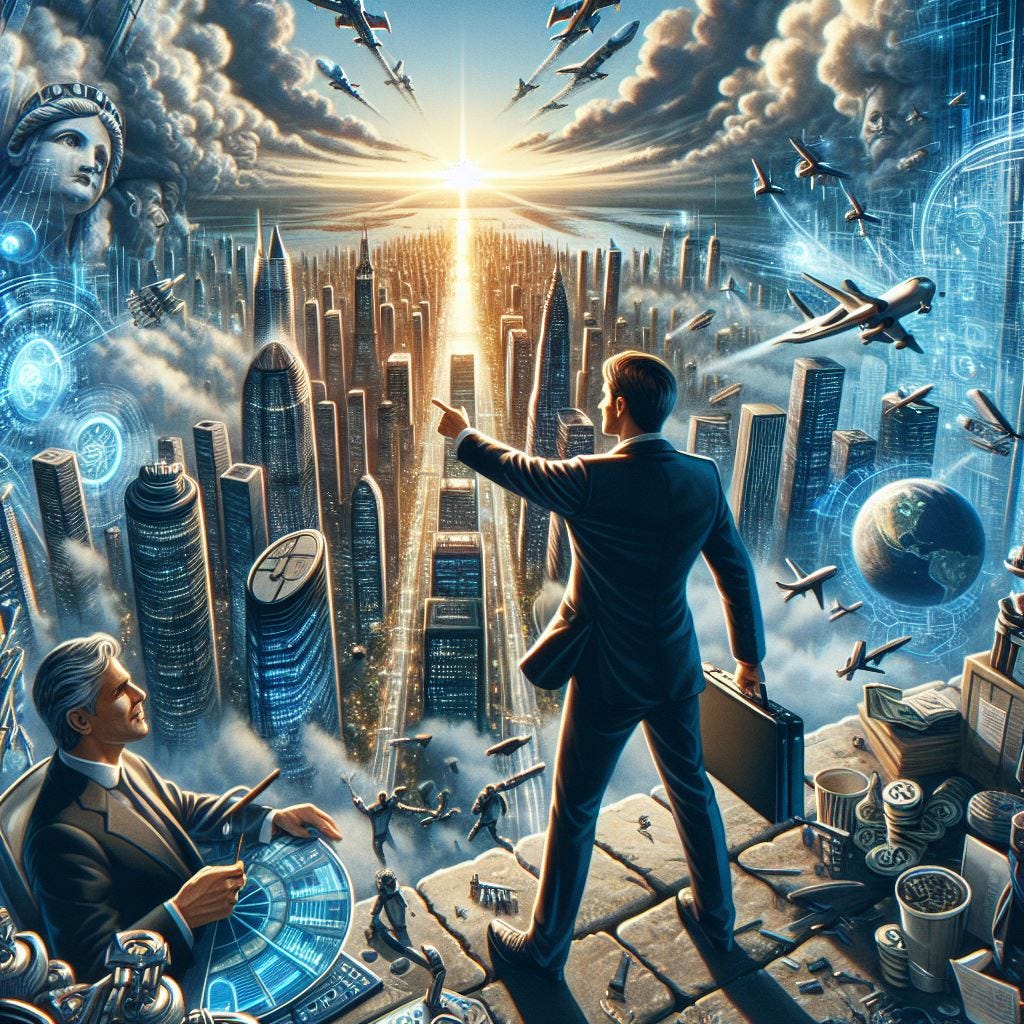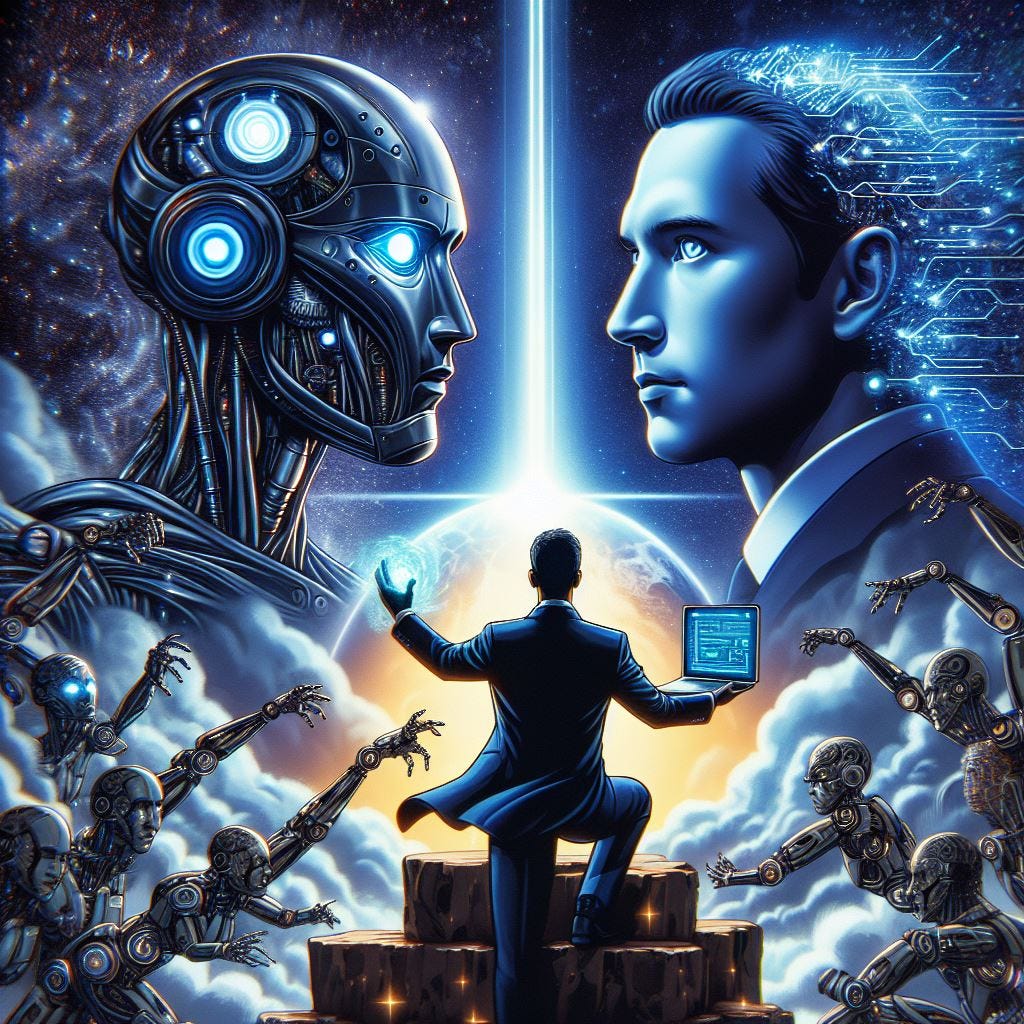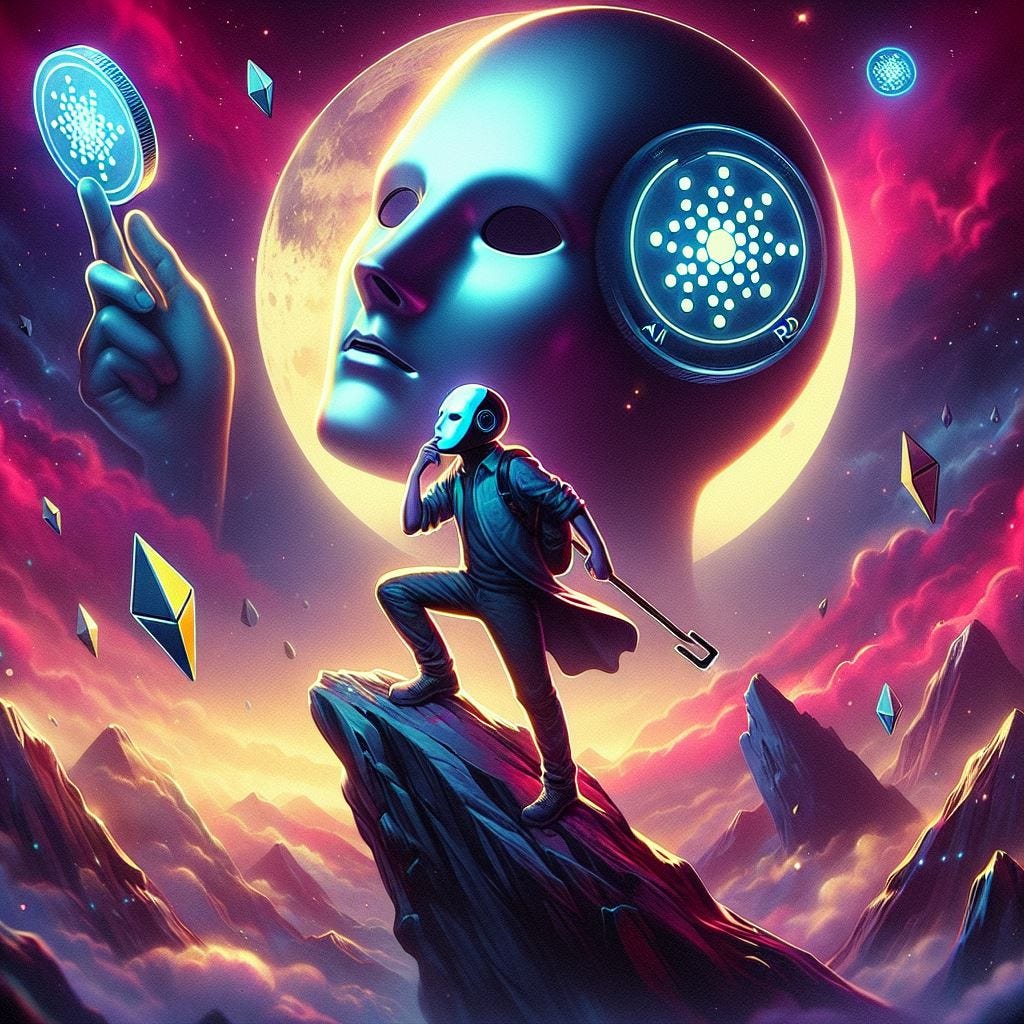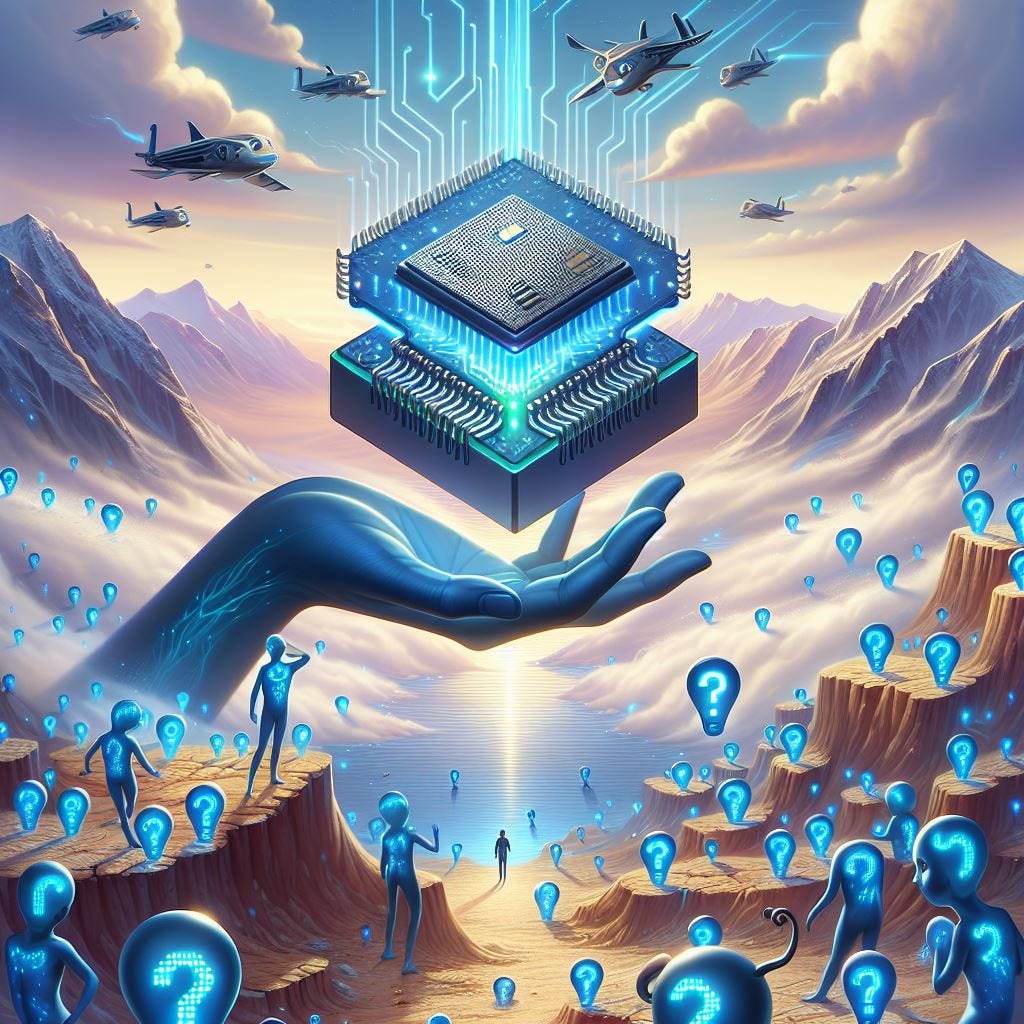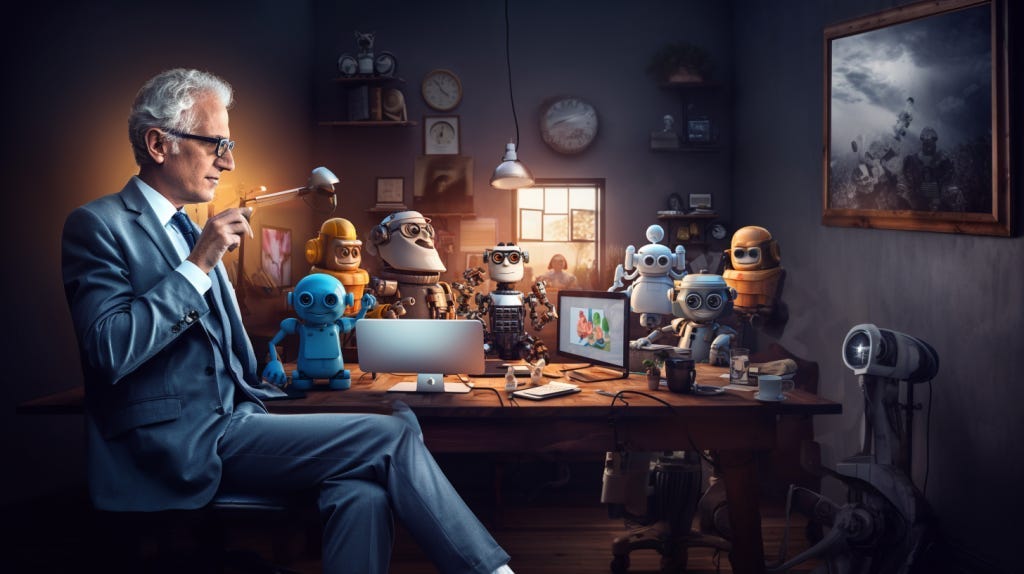The Coming AI Revolution: Billionaire Battles, Economic Upheaval, and the Workplace of Tomorrow
Musk vs. Page, Automation Anxieties, and The Coming Rise of Digital Colleagues - How Adversarial AI Investments, Economic Worries, and "Co-Bots" Will Define the Workplaces of Tomorrow
OpenAI's $51M Chip Deal Raises Questions
- OpenAI signed 2019 deal for $51M worth of AI chips from Rain, a startup CEO Sam Altman invested in personally
- Underscores OpenAI’s need to secure specialized hardware for pioneering AI
- Entanglements between Altman's investments and OpenAI duties raise concerns
- Rain's chip plans challenged as US government forced out Saudi investor over security worries
- As AI hardware needs grow, OpenAI must leverage deep pockets for supply chain independence
- But deals like the uneven Rain arrangement risk distracting mission focus amid perceived conflicts of interest
HEADLIME IS THE GO-TO GPT-3 TOOL FOR MARKETERS.
WRITESONIC IS ONE OF THE BEST ARTIFICIAL INTELLIGENCE-POWERED COPYWRITING GPT-3 TOOLS.
White-Collar Workers in AI's Crosshairs
- ChatGPT ushering accelerated AI job losses, now threatening knowledge workers
- Goldman Sachs: AI advancements could replace 300M full-time jobs while boosting GDP
- Researchers: exposure curve trends towards higher-skilled professionals
- AI can now handle complex human tasks like strategies, meeting notes
- Productivity will increase with AI integration, but so could inequality if job transitions unsuccessful
- Policymakers just beginning to address economic effects
- Workers concerned as businesses eagerly automate rote work
- Oversight and guardrails could mitigate mass displacement
- Still, AI "co-workers" arriving faster than many employees realized
Billionaire Tech Titans Battle for AI Supremacy
A ferocious yet little-known competition has been unfolding among Silicon Valley billionaires to control artificial intelligence, a technology they both covet for its world-changing potential and fear for its existential dangers.
The race traces back to 2010 when Demis Hassabis convinced Peter Thiel to fund his AI startup DeepMind, kicking off a talent acquisition arms race. As AI systems like Geoffrey Hinton’s image recognition technology demonstrated new capabilities, tech giants like Google and Microsoft bid tens of millions to assemble top research teams.
Larry Page preached an optimistic digital utopia where humans and machines would merge, while Elon Musk warned of civilizational destruction from uncontrolled AI. Their falling out spawned dueling labs - Page's DeepMind, acquired by Google, and Musk’s OpenAI, which later took Microsoft funding and built the viral ChatGPT chatbot.
Factions emerged between the "effective altruists" like Musk who prioritize AI safety and Page's wing focused on capabilities. OpenAI rebels left to form a new lab called Anthropic devoted to tightly controlled AI development.
As AI achieves feats like passing advanced biology tests, the technology both thrills and terrifies its billionaire creators. With trillion-dollar businesses at stake, old friends have become bitter enemies in a war for AI supremacy, splitting over opposing visions for either uplifting or saving humanity from its digital creations.
Cardano's Mysterious AI Token: RJV Skyrockets 93% But Pricing Anomalies Raise Questions
The Cardano-based AI token Rejuve (RJV) has mysteriously surged 93% to $0.067 over 48 hours, reaching a $25 million market capitalization. This price action has sparked intrigue as an anomaly emerges: RJV's Ethereum contract shows the token priced at $0.067, yet its original Cardano contract values it at half that, $0.0316. Centralized exchanges trading RJV show similar lower pricing. RJV powers a decentralized AI network enabling health data monitoring, insights, and longevity research contributions for rewards. Amid the unusual pricing, investors recall Changpeng Zhao's recent interest in biotech-crypto intersections. As RJV continues abnormal price performance, the dynamics driving this Cardano-based AI token's surge and future pricing evolution remain a mystery, despite Rejuve highlighting its groundbreaking AI-blockchain biotech approach to the Binance founder. The question lingers: What explains this mammoth rise, and will it persist?
OpenAI's $51M Chip Deal Raises Questions
OpenAI, the creator of ChatGPT, signed a letter of intent in 2019 to purchase $51 million worth of AI chips from startup Rain, a company CEO Sam Altman has personally invested in. Rain is developing neuromorphic chips aimed at replicating the human brain to advance AI capabilities.
While not legally binding, the deal underscores OpenAI’s need to secure specialized hardware to power pioneering projects, even as its entanglements between Altman’s personal investments and corporate interests raise concerns. OpenAI continues facing significant chip supply challenges.
Rain’s chip plans have also hit roadblocks as an interagency US government committee mandated its Saudi-affiliated investor divest over national security concerns regarding access to the novel technology.
With hardware requirements only growing as AI advances, OpenAI must leverage its deep pockets to develop supply chain independence. Yet deals like the uneven Rain arrangement risk distracting mission focus amidst clouds of perceived conflicts of interest.
White-Collar Workers in AI's Crosshairs
The rapid evolution of AI tools like ChatGPT threatens to accelerate job losses, especially for knowledge workers once considered safe from automation. As startups roll out "digital colleagues" that can perform tasks like sales and marketing, even creative roles could be vulnerable.
Goldman Sachs estimates AI advancements could replace 300 million full-time jobs while boosting GDP. But researchers see the exposure curve skewing towards higher-skilled professionals. AI can now handle complex responsibilities previously reserved for humans, from developing strategies to taking meeting notes.
While productivity stands to increase with AI integration, so does income inequality if replaced workers can't transition successfully. Policymakers are just beginning to grapple with AI's economic effects.
Workers have some cause for concern as businesses eagerly automate rote work. But oversight and guardrails enacted by governments and unions could mitigate mass displacement. Either way, for better or worse, AI-powered "co-workers" are arriving faster than many employees realized.




